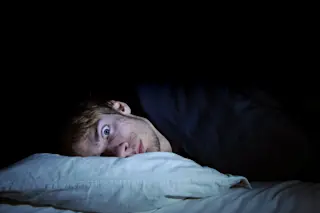When Randy Gardner entered his high school science fair in 1963, he wanted to do something big. His idea was to top the world record for sleep deprivation by staying awake for exactly 11 days. He accomplished this feat with the help of two friends, but the 264-hour “wake-a-thon” caused Gardner to experience the disturbing symptoms of sleep deprivation: memory problems, decreased motor skills, and even hallucinations.
Many of us have experienced some version of sleep deprivation — an all-nighter to finish an assignment or a late night out. The next day we feel sleepy, sluggish, and irritable. But what happens when sleepless nights accumulate into two, four, or even 11 nights?
Sleep, despite its ubiquity among humans and other animals, remains a mystery to scientists. “I’m fascinated by sleep because it occupies so much of our lives and yet it’s not fully understood,” says Brendan Lucey, associate professor of ...














